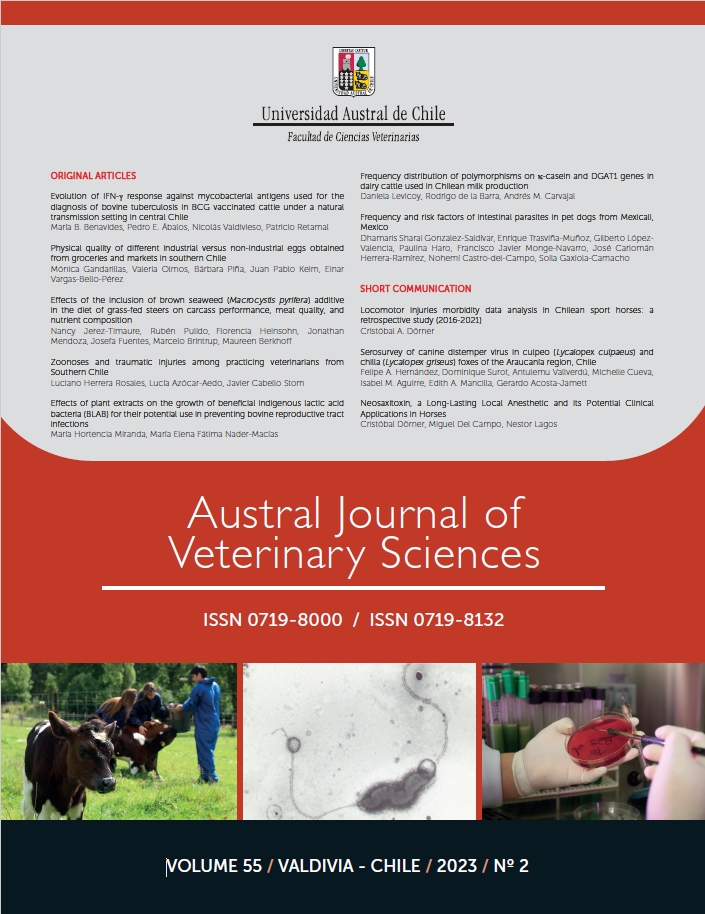Effects of the inclusion of brown seaweed (Macrocystis pyrifera) additive in the diet of grass-fed steers on carcass performance, meat quality, and nutrient composition
Main Article Content
Abstract
The objective of this study was to evaluate the inclusion of a brown seaweed additive (SWA; Macrocystis pyrifera) in the diet of grass-fed steers on carcass performance, beef quality, and nutrient composition. A total of 20 Holstein-Friesian steers were randomly distributed into two groups: Control group (a basal diet without supplementation of SWA) and SWA group (2%-SWA) with basal diet + 30 g/day/animal of SWA during the breeding phase (11 months) and 48 g/day/animal of SWA during the fattening phase (4 months). Steers fed with 2%-SWA were not different (P>0.05) in final body weight, carcass weight, carcass dressing, fat thickness, ribeye area, and marbling score than those from the Control group. Likewise, no effects of 2%-SWA supplementation were detected (P>0.05) for beef quality traits, glycolytic potential, or their metabolites (muscular glycogen, glycose+glucose-6-phosphate, and lactate), evaluated in longissimus lumborum (LL) samples. Sensory evaluation showed a slight preference for Control group samples rather than those from the 2%-SWA group (58.93% and 41.07%; P=0.06). Regarding, proximal composition, the inclusion of SWA only affected the total lipids present in the LL samples, which decreased significantly (P=0.01) in LL samples of grass-fed steers fed with 2%-SWA. The composition of macro (Ca, Na, Mg, P, and K) and micro (Mn, Fe, Cu, and Zn) minerals in LL samples were not affected (P>0.05) by the inclusion of SWA in the diet. The inclusion of the additive based on brown seaweed had not a detrimental effect on carcass performance, beef quality, and mineral content, however, it reduced the total lipids content in the LL muscle.

